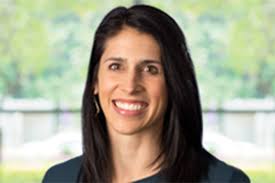There is more interest from corporates and investors in environmental, social and governance strategies but there is a lack of standardised ESG data.
Thomas Fekete, EMEA head of strategy and products for sustainable investing at BlackRock, said in the virtual Nasdaq Oslo ESG Summit this morning that it is good sign that so many companies have made a commitment to net zero emissions, including large oil companies such as BP and Shell.
“However a robust reporting framework is required for measuring, following and , seeing progress,” Fekete added. “That is why reporting under SASB and TCFD is a priority.”
In July the the Sustainability Accounting Standards Board and the Global Reporting Initiative announced a collaboration as they said the reporting effort can be high for companies that use both standards. The partnership will focus on helping stakeholders better understand how the standards may be used concurrently before the end of this year and this is expected to lead to the identification of further collaboration opportunities.
The Taskforce for Climate-related Financial Disclosures is an initiative from the Financial Stability Board to develop consistent climate-related financial risk disclosures across industries.
Jan Erik Saugestad, chief executive of Storebrand Asset Management, also said at the summit that investors need more tangible evidence on the effect of ESG strategies to see how they create value.
Kara Mangone, chief operating officer of Goldman Sachs’ sustainable finance group, agreed on the webinar that ESG data needs to be improved.
She said: “ESG is at a crossroads as everyone recognises it is important but the landscape is very messy. The perception of ESG differs and corporates and issuers are overwhelmed by information.”
Mangone continued that the Covid-10 pandemic has reinforced the message that ESG is part of the manager toolkit.
“Anecdotally, we have had more than 550 meetings with clients on sustainability, including with senior executives,” she added.
Snorre Storset, head of wealth management and chief executive CEO of Nordea Bank Norge said on a panel that ESG data is inconsistent.
“Most ESG data providers are US firms and we need a shift to European models,” he added. “We have partnered with Nasdaq but there is still work to be done.”
Bjørn Sibbern, president, European Markets, Nasdaq explained that the exchange had launched Nasdaq ESG Footprint with Nordea to allow retail investors to analyse the sustainability component of their portfolios and receive recommendations on making it higher.
Last year the exchange also launched the Nasdaq Sustainable Bond Network, a publicly available web-based platform designed to improve transparency in green, social and and sustainability bonds market. The network introduced a standard framework for impact reporting and issuers can voluntarily publish data regarding their specific bonds.
Rise of social bonds
Kjerstin Braathen, chief executive of DNB, said at the conference that the Norwegian financial services group has integrated ESG in all its equity analysis and in credit analysis over 8m Norwegian kroner.
She continued that green bonds have traditionally been 80% of the sustainable bond market but social bonds have been gaining ground as they have been issued to provide financial support and also fund healthcare after the Covid-19 pandemic.
“We need to avoid ‘socialwashing’,” Braathen added. “It took a decade to agree common standards in the green bond market and I hope it takes a shorter time for social bonds.”
Greenwashing is when corporates falsely advertise that they have environmentally friendly policies.
Braathen also referred to the controversy last year when DNB was one of the banks leading a green bond issue from Teekay Shuttle Tankers, who wanted to fund electric tankers to transport oil. She said: “To stand a chance of meeting the Paris Agreement targets, we need entities today to move in the right direction.”
John Gandolfo, VP & treasurer IFC, World Bank Group agreed at the conference that social bonds have come front and centre with issuance of $43bn so far this year, competed to $17bn in the whole of 2019.
“Demand for social bonds is not a fad and will continue to increase as the economy rebuilds after pandemic,” he added. “We also expect to see more issuance linked to the SDGs.”
In 2015 the United Nations set 17 sustainable development goals to reach by 2030, which need the investment of trillions of dollars of private capital in order be achieved.






